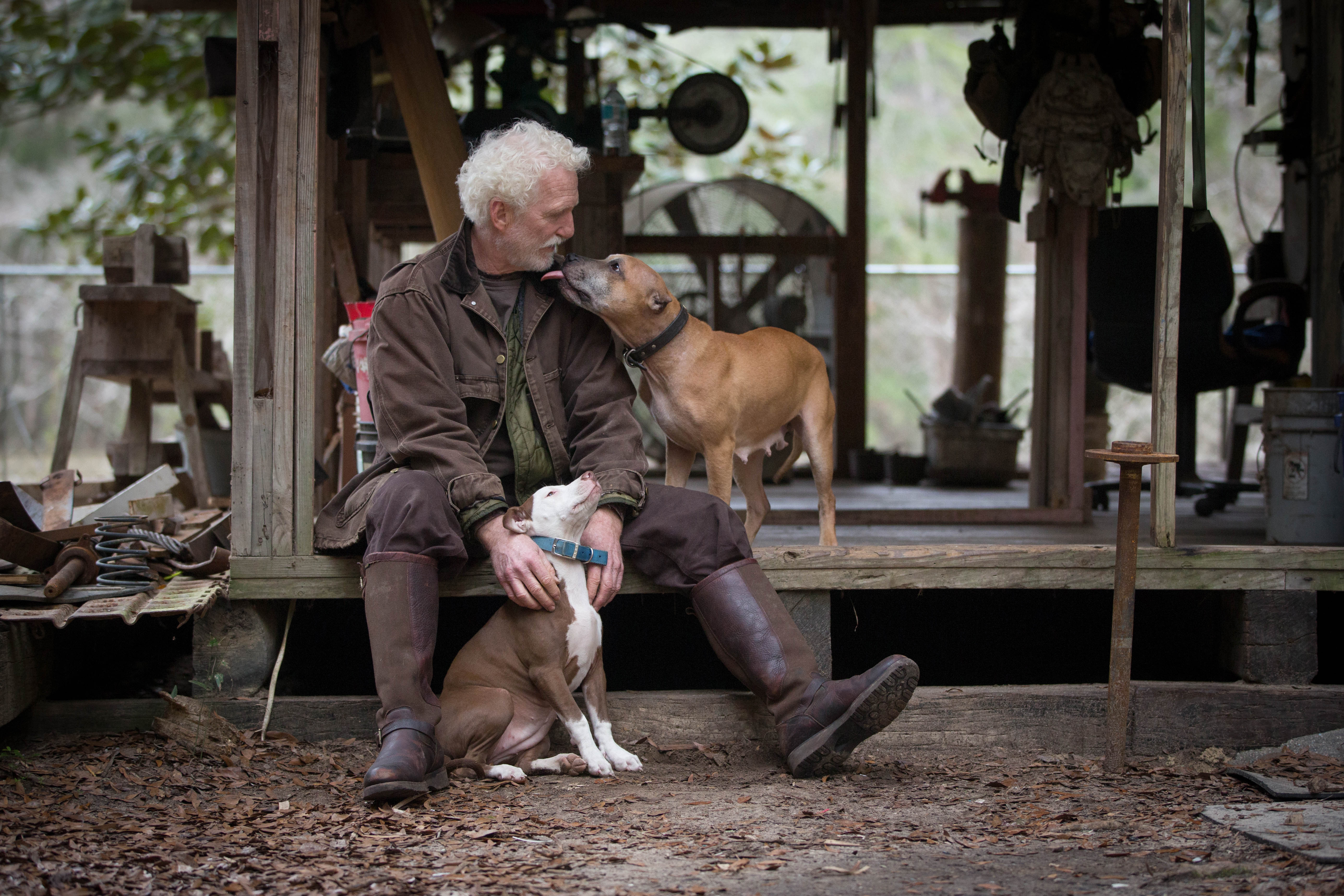10 Things That Can Instantly Ruin Your Dog’s Mood
Dogs, often hailed as man's best friend, have been companions to humans for thousands of years. Their loyalty, affection, and playful demeanor are cherished by millions of households worldwide. However, like humans, dogs have their own set of emotional needs and susceptibilities. Understanding these emotional intricacies is crucial for any dog owner who wishes to ensure their pet's happiness. This article aims to uncover the 10 instant mood crushers that could unexpectedly affect your beloved canine friend. Through this exploration, we will delve into the subtle yet impactful triggers that could dampen your dog's spirits, providing insights that will help you maintain a joyful and harmonious relationship with your furry friend. From environmental factors to behavioral cues, we will examine the multifaceted nature of canine emotions and offer practical advice to mitigate these mood crushers. By the end of this countdown, you will be equipped with the knowledge necessary to foster a nurturing and supportive environment for your dog, ensuring their well-being and happiness.
1. The Power of Routine Disruptions

Dogs thrive on routine. Their internal clocks are finely tuned to the rhythms of their daily lives, from feeding times to walks and play sessions. A sudden disruption in this routine can be a significant mood crusher for your canine companion. Imagine waking up one day and finding your entire schedule turned upside down; this is how a dog feels when their routine is unexpectedly altered. Consistency provides a sense of security and predictability, essential for a dog's mental well-being. When routines are disrupted, it can lead to confusion, anxiety, and even behavioral issues such as excessive barking or destructive chewing. It's crucial for dog owners to maintain a stable routine as much as possible. If changes are unavoidable, such as during a vacation or a move, gradual adjustments can help ease the transition. Additionally, providing alternative forms of stimulation, like interactive toys or extra playtime, can compensate for routine disruptions. Understanding the importance of routine in a dog's life highlights the need for stability and the potential emotional impact when this stability is compromised. By prioritizing routine, you can help your dog navigate life's changes with confidence and ease.
2. The Impact of Negative Reinforcement

Training is an integral part of a dog's life, shaping their behavior and fostering a harmonious relationship with their human companions. However, the methods used during training can significantly affect a dog's mood. Negative reinforcement, which involves punishing undesirable behaviors, can be particularly detrimental to a dog's emotional state. This approach can lead to fear, anxiety, and a lack of trust between the dog and its owner. Dogs are sensitive creatures, and harsh training methods can leave lasting emotional scars, hindering their ability to learn and thrive. Positive reinforcement, on the other hand, focuses on rewarding desired behaviors, fostering a supportive and encouraging environment. This method not only enhances the learning process but also strengthens the bond between the dog and its owner. By understanding the impact of training techniques on a dog's mood, owners can make informed choices that promote a positive and nurturing atmosphere. Avoiding negative reinforcement and embracing positive methods can prevent mood crushers and ensure a happy, well-adjusted canine companion.
3. The Role of Social Isolation

Dogs are inherently social animals, descended from wolves that lived and hunted in packs. This social nature means that dogs crave companionship and interaction, both with humans and other dogs. Prolonged periods of social isolation can be a significant mood crusher, leading to feelings of loneliness and depression. A dog left alone for extended periods may exhibit signs of separation anxiety, such as excessive barking, destructive behavior, or even self-harm. To prevent social isolation, it's essential to ensure that your dog receives ample social interaction. Regular playdates with other dogs, trips to the park, and quality time with family members can help satisfy their social needs. Additionally, interactive toys and puzzles can provide mental stimulation when human company is unavailable. Understanding the importance of social interaction for dogs is key to preventing mood crushers and promoting a fulfilling life for your canine friend. By prioritizing social engagement, you can help your dog lead a happy and emotionally balanced life.
4. The Effects of Environmental Stressors

The environment in which a dog lives plays a crucial role in their emotional well-being. Certain environmental stressors, such as loud noises, chaotic surroundings, or a lack of space, can be significant mood crushers. Dogs have acute senses, and what may seem like minor disturbances to humans can be overwhelming for them. Loud noises, such as fireworks or thunderstorms, can trigger anxiety and fear, leading to behavioral changes and physical symptoms like trembling or hiding. Creating a calm and secure environment is essential for a dog's emotional health. Providing a designated safe space, such as a quiet room or a cozy crate, can help alleviate stress during overwhelming situations. Additionally, using calming aids like anxiety wraps or pheromone diffusers can provide comfort during stressful events. By recognizing and mitigating environmental stressors, dog owners can prevent mood crushers and create a peaceful sanctuary for their furry companions. Prioritizing a stress-free environment ensures that your dog can thrive and enjoy a happy, contented life.
5. The Influence of Inadequate Exercise

Exercise is a fundamental aspect of a dog's life, contributing to their physical health and emotional well-being. A lack of adequate exercise can be a significant mood crusher, leading to boredom, frustration, and even obesity-related health issues. Dogs are naturally energetic creatures, and regular physical activity is essential for releasing pent-up energy and maintaining a balanced mood. Without sufficient exercise, dogs may resort to undesirable behaviors, such as excessive barking, digging, or chewing. To prevent mood crushers related to inadequate exercise, it's important to provide daily opportunities for physical activity. This can include walks, runs, playtime, or engaging in dog sports like agility or flyball. Tailoring the exercise routine to your dog's breed, age, and health condition ensures they receive the appropriate level of activity. By prioritizing exercise, dog owners can promote a healthy and happy lifestyle, preventing mood crushers and enhancing their dog's overall well-being. Regular exercise not only benefits the dog's physical health but also strengthens the bond between owner and pet through shared activities and experiences.
6. The Consequences of Poor Nutrition

Nutrition plays a vital role in a dog's overall health and mood. A poor diet can be a significant mood crusher, leading to lethargy, irritability, and even behavioral issues. Dogs require a balanced diet rich in essential nutrients to support their physical and mental well-being. A lack of proper nutrition can result in deficiencies that affect a dog's energy levels, immune system, and cognitive function. Additionally, certain ingredients, such as artificial additives or low-quality fillers, can contribute to digestive issues and allergies, further impacting a dog's mood. To prevent mood crushers related to poor nutrition, it's essential to provide a high-quality diet tailored to your dog's specific needs. Consulting with a veterinarian or a pet nutritionist can help determine the best dietary plan for your dog, taking into account factors such as age, breed, and health conditions. By prioritizing nutrition, dog owners can ensure their pets receive the necessary nutrients for optimal health and happiness. A well-balanced diet not only supports physical well-being but also contributes to a positive and vibrant mood, preventing mood crushers and promoting a fulfilling life for your canine companion.
7. The Dangers of Inconsistent Training

Consistency is key when it comes to training dogs. Inconsistent training can be a significant mood crusher, leading to confusion, frustration, and behavioral issues. Dogs thrive on clear communication and predictable outcomes; when training methods or rules change frequently, it can create uncertainty and stress. Inconsistent training undermines a dog's ability to learn and adapt, resulting in a lack of confidence and trust in their owner. To prevent mood crushers related to inconsistent training, it's important to establish clear and consistent guidelines for behavior. This involves using the same commands and rewards consistently across all family members and situations. Regular training sessions, combined with positive reinforcement, help reinforce desired behaviors and build a strong foundation of trust and understanding. By prioritizing consistency in training, dog owners can prevent mood crushers and foster a positive and supportive learning environment for their pets. Consistent training not only enhances a dog's behavior but also strengthens the bond between owner and pet, promoting a harmonious and fulfilling relationship.
8. The Impact of Lack of Mental Stimulation

Mental stimulation is as important as physical exercise for a dog's well-being. A lack of mental engagement can be a significant mood crusher, leading to boredom, anxiety, and destructive behavior. Dogs are intelligent creatures that require mental challenges to stay engaged and fulfilled. Without adequate mental stimulation, dogs may become restless and resort to undesirable behaviors as a means of occupying their time. To prevent mood crushers related to a lack of mental stimulation, it's essential to provide a variety of activities that challenge your dog's mind. This can include puzzle toys, interactive games, training sessions, or scent work. Rotating toys and introducing new challenges regularly can keep your dog mentally engaged and prevent boredom. By prioritizing mental stimulation, dog owners can promote a happy and balanced lifestyle, preventing mood crushers and enhancing their dog's overall well-being. Mental engagement not only enriches a dog's life but also strengthens the bond between owner and pet through shared experiences and achievements.
9. The Effects of Health Issues

Health issues can be a significant mood crusher for dogs, affecting their physical comfort and emotional well-being. Chronic pain, illness, or untreated medical conditions can lead to irritability, lethargy, and changes in behavior. Dogs are masters at hiding pain, and subtle signs of discomfort may go unnoticed by even the most attentive owners. However, these health issues can have a profound impact on a dog's mood and quality of life. To prevent mood crushers related to health issues, it's crucial to prioritize regular veterinary check-ups and preventive care. Early detection and treatment of medical conditions can alleviate discomfort and improve a dog's overall well-being. Additionally, maintaining a healthy lifestyle through proper nutrition, exercise, and dental care can prevent many common health problems. By prioritizing health, dog owners can ensure their pets enjoy a happy and pain-free life, preventing mood crushers and promoting a fulfilling relationship. A healthy dog is a happy dog, and addressing health issues promptly can contribute to a positive and vibrant mood.
10. The Surprise Factor - Owner's Stress Levels

While the previous sections focused on factors directly affecting dogs, the tenth factor in this countdown is the owner's stress levels. Dogs are incredibly attuned to their owner's emotions and can pick up on stress, anxiety, and tension. An owner's stress can be a significant mood crusher for a dog, leading to confusion, anxiety, and behavioral changes. Dogs often mirror their owner's emotions, and a stressed owner can inadvertently create a stressful environment for their pet. To prevent mood crushers related to owner's stress levels, it's important for dog owners to prioritize self-care and stress management. Practicing relaxation techniques, seeking support from friends or professionals, and maintaining a balanced lifestyle can help reduce stress and create a positive atmosphere for both owner and pet. By prioritizing emotional well-being, dog owners can prevent mood crushers and foster a harmonious and supportive environment for their canine companions. A calm and relaxed owner contributes to a happy and contented dog, strengthening the bond between them and promoting a fulfilling relationship.
Understanding the various factors that can impact a dog's mood is essential for any responsible and caring dog owner. From routine disruptions and negative reinforcement to social isolation and environmental stressors, each section of this article has explored a unique aspect of canine emotional well-being. By recognizing and addressing these potential mood crushers, dog owners can create a nurturing and supportive environment that promotes happiness and fulfillment for their beloved pets. Ultimately, the key to a happy and contented canine companion lies in understanding and meeting their emotional needs. By fostering a loving and supportive relationship, dog owners can ensure their pets lead a fulfilling life, free from the burdens of mood crushers. With this knowledge in hand, you are now equipped to cultivate a joyful and enriching life for your beloved canine friend, strengthening the bond between you and creating a lifetime of cherished memories together.







